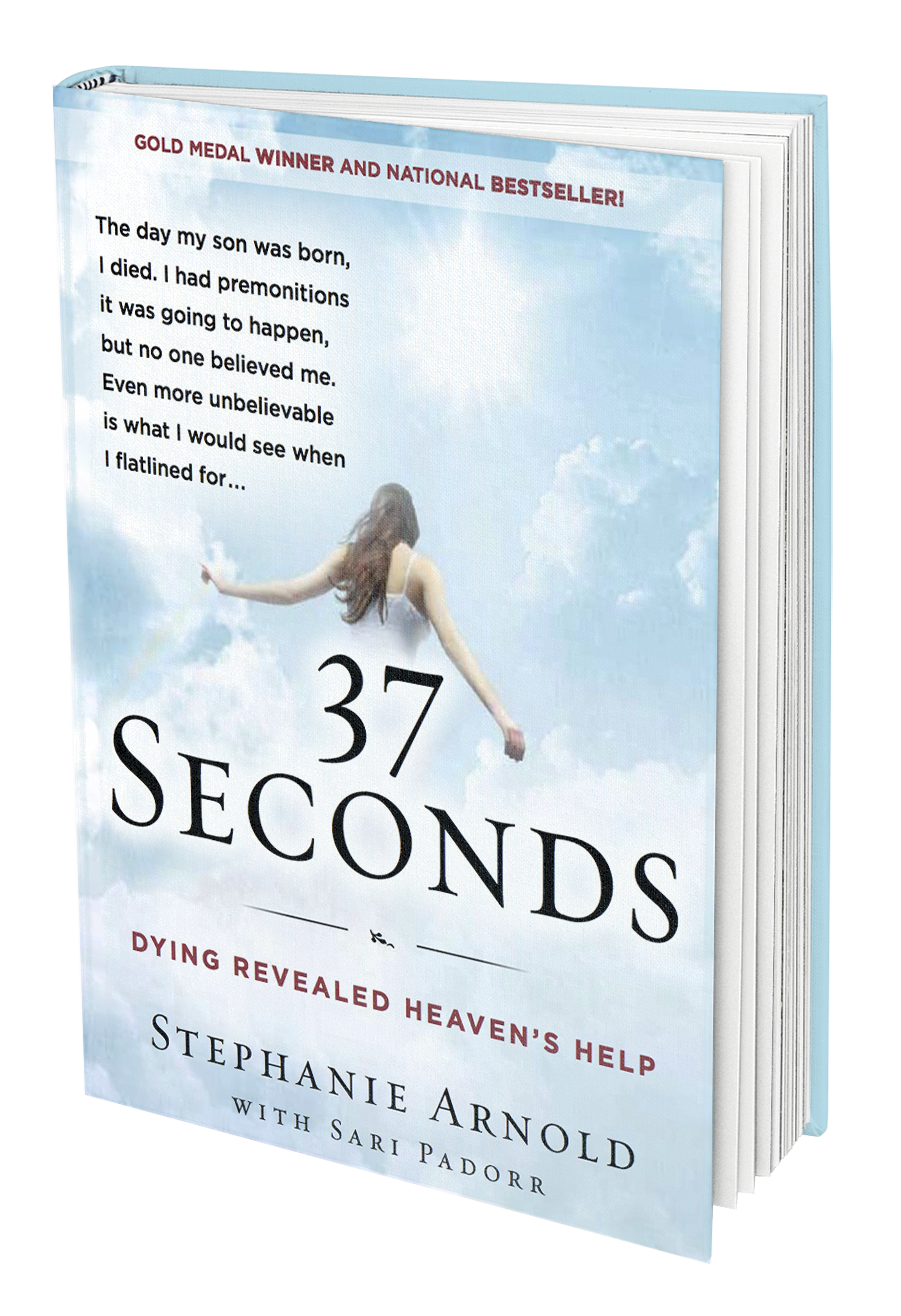Three doctors and a medical student stand, arms crossed, debating the finer points of intuition. It might sound like the opening line to a joke, but in this case nobody is laughing.
This student interrogates the doctors about the theme of today’s bioethics lecture: How imperative it is to listen to the patient, as they are already giving you the diagnosis. The student gives a specific scenario: “What do you do if you have a pregnant woman who says she has visions she is going to die during delivery?” The doctors fell back to generalizations and and a canned response when they don’t have an answer: : “It is highly unlikely anything would come of that.”
Now for those of you who follow my blog or have read 37 Seconds, you know exactly what can happen in the above scenario, because I was that pregnant woman. But for those new to my ordeal, you can understand how the idea of a hormonal, possibly neurotic, type-A, pregnant woman talking about her impending doom could sound a bit loony. Especially to medical professionals.
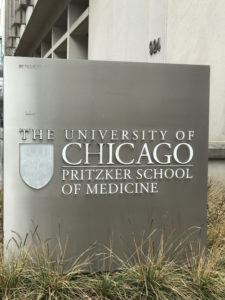 Fast forward two of weeks and I am standing in a lecture hall at the University of Chicago’s Pritzker School of Medicine. This is the very spot where bright students work to become the next generation of MDs to make new discoveries and cure diseases. But my audience isn’t just students; there are a few seasoned professionals there as well. Many of those in the lecture hall have an appetite for the topic, while some might just have an appetite for the free bagels.
Fast forward two of weeks and I am standing in a lecture hall at the University of Chicago’s Pritzker School of Medicine. This is the very spot where bright students work to become the next generation of MDs to make new discoveries and cure diseases. But my audience isn’t just students; there are a few seasoned professionals there as well. Many of those in the lecture hall have an appetite for the topic, while some might just have an appetite for the free bagels.
One doctor came in and I asked what he knew of my story before I began the lecture. He said, “A little bit. But I am not so sure of your story.”
Great. Others might get nervous when a skeptic approaches, but I relish it. I had my husband by my side and I was ready for the challenge.
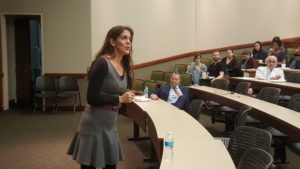 By the end of my talk I was barraged with questions. It was much of the usual: How? When? Why?
By the end of my talk I was barraged with questions. It was much of the usual: How? When? Why?
Then the doctor, who introduced himself as skeptical, began hammering me with question after question. I can easily handle most of the questions people have, but there’s one I can’t fully answer because I believe it’s part of a bigger purpose in this second chance at life I’ve been given. He asked, “What do you want us to take away from your story?” I told him the purpose of my talks is to urge doctors to listen to patients differently–to use their own intuition to help guide them when science says something different. And to have patients speak up when they sense something is wrong.
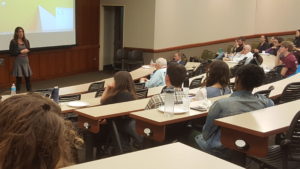
Still, he looked at me with a somewhat dismissive look–as if my answers weren’t good enough. Apparently, the takeaway I suggested from my story just wasn’t what he was looking for to help his students. I left with the feeling that I got an F that day. Even though student after student gave me examples of their own experiences or family situations where intuition helped them–and validating everything I stood for–I still had this nagging feeling I left a very big question unanswered–both for that skeptical doctor, and for myself.
When he was saying goodbye, this doctor said “I’ve never heard a story like yours in my entire career. And I’ll never hear of something like it again. So I’m going to forget about it.” I momentarily felt offended–so much so that the Latina in me wanted to spin my neck around, claws out and snap back with, “What did you just say to me?”
But when I looked at my husband (who was standing right next to me), he smiled and later whispered 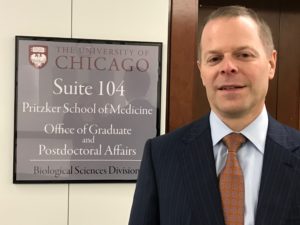 some words of encouragement. “Honey, it was a compliment. He cannot explain what happened to you and because you are an outlier, he will likely never hear about it again. This doctor does not want to focus any energy on trying to figure it out, or teach his students about premonitions, when the majority of cases will never have anything similar to yours.”
some words of encouragement. “Honey, it was a compliment. He cannot explain what happened to you and because you are an outlier, he will likely never hear about it again. This doctor does not want to focus any energy on trying to figure it out, or teach his students about premonitions, when the majority of cases will never have anything similar to yours.”
 As the doctor turned to leave, I told him a story of the Lubavitcher Rebbe and how he gave me a dollar when I was 21. (The Rebbe would hand dollars he had blessed to people and give them some insight or a prayer from him to them). The white-haired doctor stopped and said, “Yes, the Rebbe gave me a dollar too.” And then it hit me: He wasn’t skeptical at all! There was more to this doctor’s story and my intuition had kicked into high gear.
As the doctor turned to leave, I told him a story of the Lubavitcher Rebbe and how he gave me a dollar when I was 21. (The Rebbe would hand dollars he had blessed to people and give them some insight or a prayer from him to them). The white-haired doctor stopped and said, “Yes, the Rebbe gave me a dollar too.” And then it hit me: He wasn’t skeptical at all! There was more to this doctor’s story and my intuition had kicked into high gear.
Maybe I am wrong, but sometimes when people have a knee-jerk reaction to something which makes them uncomfortable, they go out of their way to dismiss it.
Our story was not comfortable-that’s for sure. I am not done with this doctor–or his dismissive demeanor. I calmed down, smiled and gave the “skeptic” a book.
As I thought more about it, I really liked him! Call it the law of “unintended consequences,” but I came to give a lecture and left with a fire in my belly. And this doctor, this doubter, had everything to do with it.
And now I ask myself: What do I want to take away from this story? It’s ironic that my skeptic’s words are the words that now inspire me. They have taught me that I need to be focused in my purpose. To do that, sometimes you have to ask hard questions of yourself.
How can I learn from this experience–and how would I best approach the subject matter to the most scientific of minds? The answer is: research. Finding others, like me, who would be willing to open their hearts and minds to talk about their experiences–and work with them to get an audience with those who may be skeptical. Maybe then, an audience of doctors won’t roll their eyes or try to “forget” our stories. The more we prove the sixth sense exists, the more it cannot be ignored.
This conversation is far from over. Whether it is with this doctor or others who are unsure, or who would rather forget. Stay tuned.



